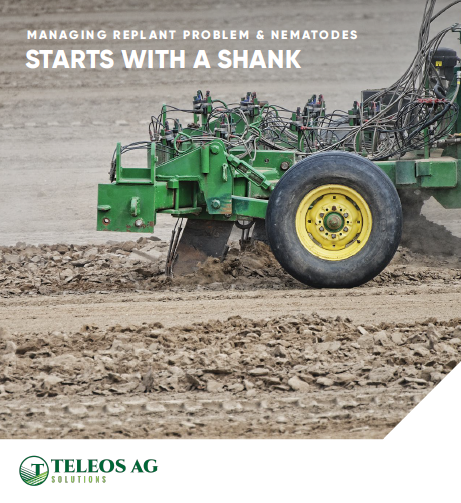Opinion: Sustainable And Organic Not The Same
Last December, our sister publication American Vegetable Grower published an analysis of the differences between organic and sustainable agriculture. The article can be summed up in a quote from one of the experts included in the report. “You don’t have to be organic to be sustainable. There are organic systems that aren’t sustainable; just because a grower is organic doesn’t mean that he’s sustainable, but committing to organic production is one way to become more sustainable.” These were the words of Mike Hogan, coordinator for the Ohio Sustainable Agriculture Research and Education Program.
And yet, there are far too many instances when these terms are used interchangeably. Because we tend to look at organic and sustainable as production practices moreso than lifestyle choices, it may be easier for us to distinguish between the two. As a grower, and an insider to the industry, you’re probably the same way. However, consumers don’t necessarily think this way, which means it’s more important than ever for the fruit industry to make these differences as evident as possible.
It’s a dangerous precedent to equate sustainable with organic, for a number of reasons. For one thing, it discredits the efforts of those growers who have worked hard to incorporate sustainable practices into all aspects of their business. We’ve mentioned previously that sustainability can encompass any number of ideas, including integrated pest management, lowering your carbon footprint, treating your labor fairly, protecting wildlife, and, yes, growing organically. For many growers, sustainability is something they’ve been following for many years, even if they’ve never specifically called it by that name.
The other problem with this mindset is that, frankly, it’s just not true. Some organic supporters say that to be sustainable, it is necessary to be organic, and organic and sustainable are interchangeable terms. The flaw in this attitude lies in the fact that it’s simply not possible to maintain an adequate food supply to feed an ever-growing world population by relying solely on organic production methods. At the very least, it’s not an economical option — just ask any grower who lives in a wet, humid climate. In order for an industry to be sustainable, it must be not only environmentally viable, but also economically viable.
We are living in a time when crop protection products have led the way for improved productivity in a much more environmentally friendly way. There are revolutionary new products available today that use new, safer modes of action with few environmental effects compared to previous generations of products. Yet conventional agriculture — despite being based on sound science and best management practices — is being demonized in some parts of the mainstream press. And telling someone they have to be organic to be sustainable does not help.
Cottoning To Sustainability
So how do you go about promoting sustainability as an ideal farming choice, while making it clear you don’t have to be organic to do so? One approach we have emphasized in these pages is to educate your customers about your growing practices, including your pest management approach. This makes them aware that you are being as environmentally conscious as possible in all of your efforts. After all, growers rely on a strong environment for producing quality fruit, so it makes sense that they act as stewards of the land.
One other approach is to take the lead of the cotton industry. Cotton growers and professionals in California launched the Sustainable Cotton Project back in 1996, with the goal of bringing farmers, manufacturers, and consumers together to provide growers with information about biological farming techniques, and educate the public about the importance of reducing chemical use in fiber and food production and supporting local farmers. On the growing side, the group partners with conventional growers who recognize the need to reduce chemical use, helping them implement reduced-risk farming methods to minimize this impact.
And it’s not limited to California. The International Cotton Advisory Committee has emphasized sustainability as more than just environmental protection, but also effective use of resources. They also point out that focusing on organic production can contradict this message. Because organic cotton yields are much lower per acre than conventional production, it takes more land to produce the same amount of crop organically.
The Center for Global Produce Sustainability, a partnership between Bayer CropScience and United Fresh Produce Association, is working to enhanced sustainability in the produce supply chain. Let’s hope that one of their goals is real education on what sustainability means. It’s a message the fruit industry needs to make known to its customers.









